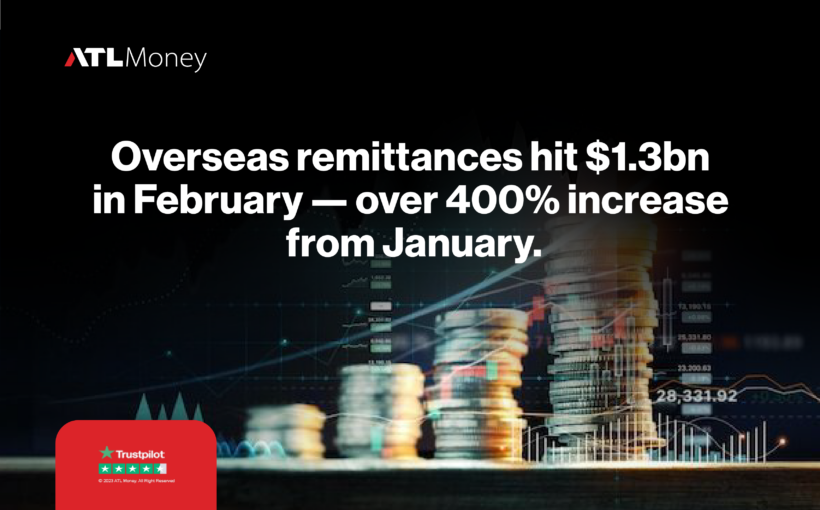The global financial landscape has seen significant changes in recent months, particularly in the area of overseas remittances. According to the latest data, overseas remittances surged to $1.3 billion in February, marking an impressive increase of over 400% from the previous month.
This dramatic rise underscores the growing reliance on international money transfers as economies recover and expatriates support their families back home.
Regional Highlights
Several countries have seen substantial increases in remittances. For instance, countries in South Asia and Africa, which rely heavily on remittances for their economies, have benefited significantly from this surge. In countries like India and the Philippines, remittances constitute a large portion of their GDP, making this increase particularly impactful.
In Nigeria, for example, remittances are a critical component of the economy. The increase in funds sent home by Nigerians working abroad has provided a much-needed boost to local economies, helping families pay for essential services like education, healthcare, and daily expenses.
Economic Impact
The influx of $1.3 billion in remittances in February has several positive implications. For recipient countries, remittances often serve as a stable source of income. They can help to alleviate poverty and improve living standards. These funds are frequently used for essential needs, including housing, food, education, and healthcare.

Moreover, remittances contribute to the foreign exchange reserves of recipient countries, which can help stabilize local currencies and support economic growth. In many developing nations, the increase in remittances can lead to improved economic stability and development.
The Role of Digital Platforms
Digital platforms have played a crucial role in facilitating this surge in remittances. With the advent of fintech solutions, sending money abroad has never been easier. Companies like ATLMoney have leveraged technology to provide fast, secure, and low-cost remittance services. These platforms offer users the ability to send money abroad with just a few clicks. They eliminate the need for traditional banking methods, which can be time-consuming and expensive.
Additionally, mobile apps and online platforms have made it possible for people to send money from the comfort of their homes, ensuring that even those in remote areas can access financial services. This democratization of financial services has contributed significantly to the increase in remittances.
Looking Ahead
The trend of increasing remittances is expected to continue as more people gain access to digital financial services and the global economy continues to recover. The role of remittances in supporting families and boosting local economies cannot be overstated.
For those looking to send money abroad, it is crucial to choose reliable and cost-effective platforms. ATLMoney, for instance, offers competitive rates and a user-friendly interface, making it an excellent choice for international money transfers.
In conclusion,
The significant increase in overseas remittances to $1.3 billion in February highlights the importance of remittances in the global economy.
As digital platforms continue to evolve and provide more accessible financial services, the ease of sending money abroad will only improve, benefiting millions of families worldwide.
